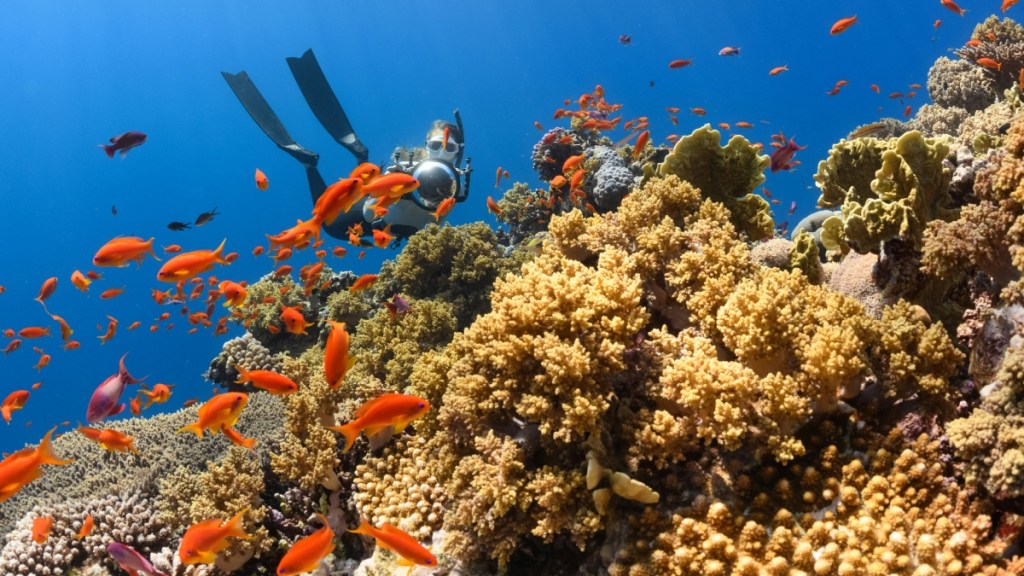Ready to learn about an awesome scientific discovery? Off the coast of the Solomon Islands, the world’s largest single coral has been discovered. It’s so massive, in fact, that it can be viewed all the way from space. This fact alone makes the discovery incredible, but there’s a lot more to why it has scientists from all over feeling more hopeful.
Videos by InspireMore
It is said that more than 40% of warm-water reef-building coral species face extinction. The primary reason? Climate change. This is not good, in part, because of the benefits they provide. Check out the video below to learn more about that — and to witness this massive coral for yourself!
@cnn A group of scientists has discovered the world's largest single coral, measuring more than 100 feet long, in the southwest Pacific Ocean. It's more than three times bigger than the previous record holder, roughly 300 years old and made of nearly 1 billion tiny polyps. #CNN #News ♬ original sound – CNN
“Just when we think there is nothing left to discover on planet Earth, we find a massive coral made of nearly 1 billion little polyps, pulsing with life,” Enric Sala, National Geographic explorer in residence and founder of Pristine Seas, says.
Like other coral, this newly discovered one faces threats from both global warming and humans. Still, despite these threats, this discovery has scientists feeling hopeful. Compared to the last largest coral, this one is three times bigger. Plus, it has been around for roughly 300 years. This is evidence that, despite the challenges coral face, they still have a good chance at survival!
Scientists Find Hope in the Larges Coral Reef That Was Recently Discovered in the Pacific Ocean
“The survival of this coral, which is hundreds of years old, illustrates that all is not lost for coral reefs,” Derek Manzello, coordinator of the National Oceanic and Atmospheric Administration (NOAA) shares. “This is a really cool finding to hear about!”
“This shows that there are still environmental conditions where corals can survive and thrive, even potentially through the accelerating impacts of climate change,” director of coral reefs at the Wildlife Conservation Society, Emily Darling, adds.
You can find the source of this story’s featured image here!
Want to be happier in just 5 minutes a day? Sign up for Morning Smile and join over 455,000+ people who start each day with good news.


